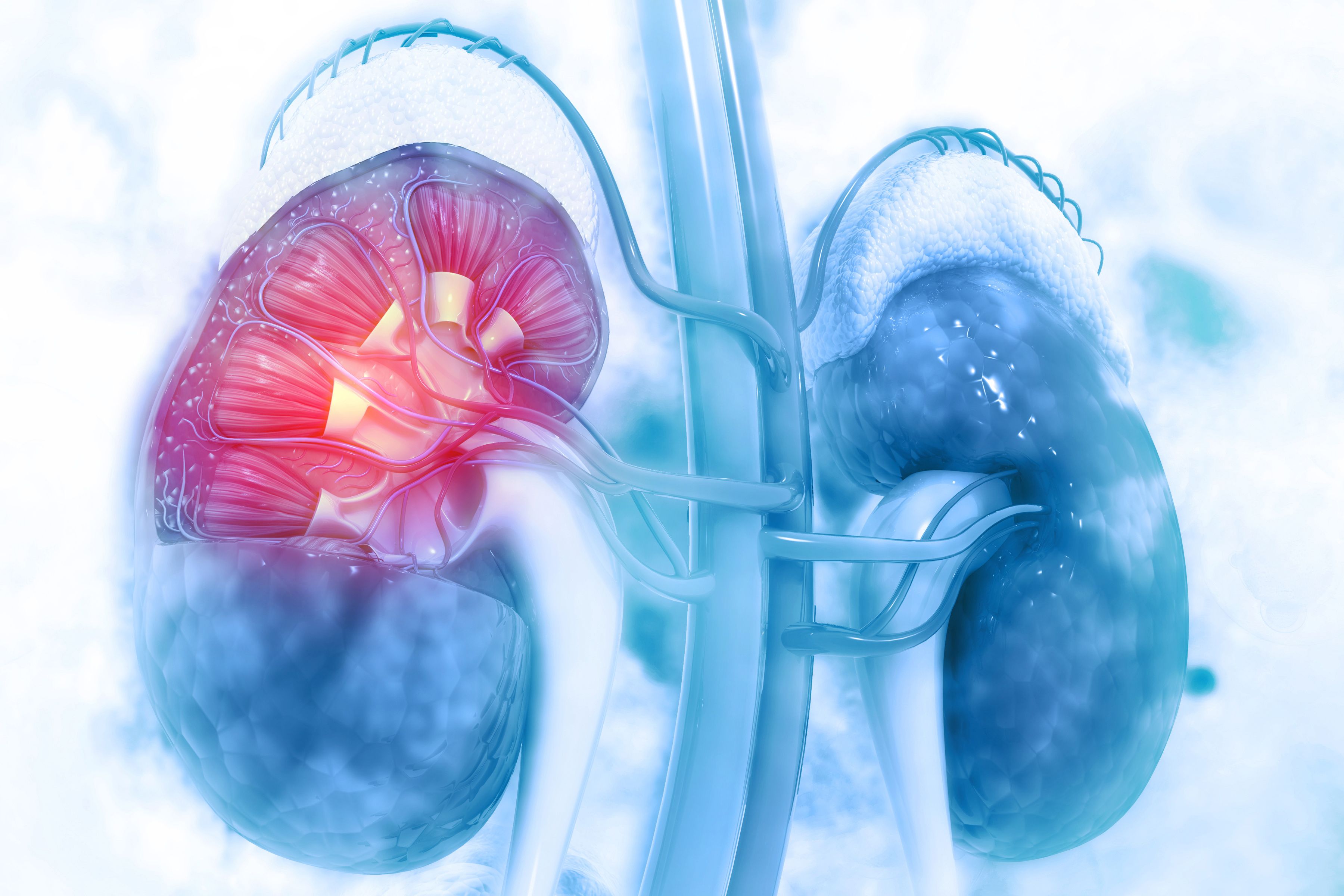Belzutifan Plus Cabozantinib Sustains Antitumor Activity at 2 Years in Advanced RCC
The combination of belzutifan and cabozantanib maintained antitumor activity in patients with advanced clear cell renal cell carcinoma who previously received immunotherapy.

The combination of belzutifan and cabozantanib maintained antitumor activity in patients with advanced clear cell renal cell carcinoma (ccRCC) who previously received immunotherapy at 24.6 months of follow-up, according to results from cohort 2 of the ongoing LITESPARK-003 trial (NCT03634540).1
Phase 2 data were presented in a poster during the ESMO 2022 Congress. The overall objective response rate (ORR) in the intention-to-treat population (N = 52) was 31% (95% CI, 18.7%-45.1%). Among patients with favorable-risk disease (n = 11) as assessed by International Metastatic RCC Database Consortium (IMDC) standards, the ORR was 27% (95% CI, 6.0%-61.0%). The ORR was 32% (95% CI, 18.1%-48.1%) in those with intermediate/poor-risk disease (n = 41).
As of the February 1, 2022, data cutoff, 10 patients remained on treatment. The median time from first dose to database cutoff was 23.6 months (range, 17.9-39.8).
Immune checkpoint inhibitors are the standard of care for advanced RCC, but recurrence is common. In previous data, belzutifan, a first-in-class HIF-2α inhibitor, has shown durable responses in heavily pretreated RCC. LITESPARK-003 evaluated the agent in combination with cabozantinib, a multikinase inhibitor already approved for use in RCC, among patients who previously received immune checkpoint inhibitor therapy and no more than 2 systemic therapies.
All patients received 120 mg daily belzutifan plus 60 mg daily cabozantanib. Following week 9, investigators conducted tumor assessment every 8 weeks for the first 12 months. They then conducted assessments every 12 weeks.
The primary end point was ORR by RECIST 1.1 or by investigator. Secondary end points included duration of response (DOR), progression-free survival (PFS) by RECIST 1.1 or by investigators, overall survival (OS), and safety.
The median age was 63 years (range, 43-79) and men made up 73% of the cohort. Twenty-three (44%) had an ECOG performance score of 0 and 29 (56%) had a score of 1.
Twenty-one percent of patients had favorable-risk disease and 79% had intermediate/poor disease. Twenty-nine patients (56%) had received 1 prior lines of therapy and 23 (44%) had received 2. Fifty-four percent of patients received immunotherapy only (n = 28); the remaining 46% received immunotherapy plus anti-VEGF or anti-VEGFR treatment (n = 24).
Among the immunotherapy-only group (n = 28), the ORR was 32% (95% CI, 15.9%-52.4%). For those who received immunotherapy and systemic therapy, the ORR was 29% (95% CI, 12.6%-51.1%). The ORR was 31% (95% CI, 15.3%-50.8%) for those who received only 1 prior line of therapy and 30% (13.2%-52.9%) for those who received 2.
The median DOR for all responders was 18.6 months (range 4.2-22.8) with 65% of responders having a response at 12 months. The median PFS was 13.8 months (95% CI, 9.2-19.4). PFS rate was 56% at 12 months and 25% at 24 months.
The median OS was 24.1 months (95% CI, 20.0-37.4). The OS rate at 12 months was 77% and 54% at 24 months.
Twenty-seven (52%) patients discontinued treatment due to disease progression. Seven (13%) discontinued for adverse events.
Nearly all patients (98%) experienced treatment-related adverse events (TRAEs); 65% experienced grade 3 events. The most common grade 3 TRAEs were hypertension (27%), anemia (15%), and fatigue (12%). Investigators observed no grade 4 TRAEs.
One patient died from treatment-related respiratory failure. However, investigators noted this patient had numerous comorbidities including chronic obstructive pulmonary disease, pulmonary metastasis, pleural effusion, and lymphangitic carcinomatosis.
Recruitment is underway for the phase 3 LITESPARK-011 trial (NCT04586231) assessing belzutifan plus lenvatinib (Lenvima) vs cabozantinib. Eligible patients include those who experienced disease progression on or after an anti–PD-1/PD-L1 therapy as either first or second-line treatment for locally advanced/metastatic RCC or as adjuvant treatment or neoadjuvant/adjuvant with progression on or within 6 months of last dose.2
References
1. McDermott DF, Choueiri TK, Tykodi SS, et al. Phase II study of belzutifan plus cabozantinib for previously treated advanced renal cell carcinoma (RCC): Update from cohort 2 of LITESPARK-003. Presented at: ESMO 2022 Congress; September 9-13, 2022; Paris, France. Abstract 1453P.
2. A study of belzutifan (MK-6482) in combination with lenvatinib versus cabozantinib for treatment of renal cell carcinoma (MK-6482-011). ClinicalTrials.gov. Updated September 6, 2022. Accessed September 12, 2022. https://clinicaltrials.gov/ct2/show/NCT04586231
Enhancing Precision in Immunotherapy: CD8 PET-Avidity in RCC
March 1st 2024In this episode of Emerging Experts, Peter Zang, MD, highlights research on baseline CD8 lymph node avidity with 89-Zr-crefmirlimab for the treatment of patients with metastatic renal cell carcinoma and response to immunotherapy.
Listen
Beyond the First-Line: Economides on Advancing Therapies in RCC
February 1st 2024In our 4th episode of Emerging Experts, Minas P. Economides, MD, unveils the challenges and opportunities for renal cell carcinoma treatment, focusing on the lack of therapies available in the second-line setting.
Listen
Peers Discuss Management of IO/TKI Toxicities and Dosing Strategies in Frontline RCC
March 11th 2025During a Case-Based Roundtable® event, Elizabeth M. Wulff-Burchfield, MD, and other participants discussed their experiences with the frontline combination regimens for advanced renal cell carcinoma.
Read More